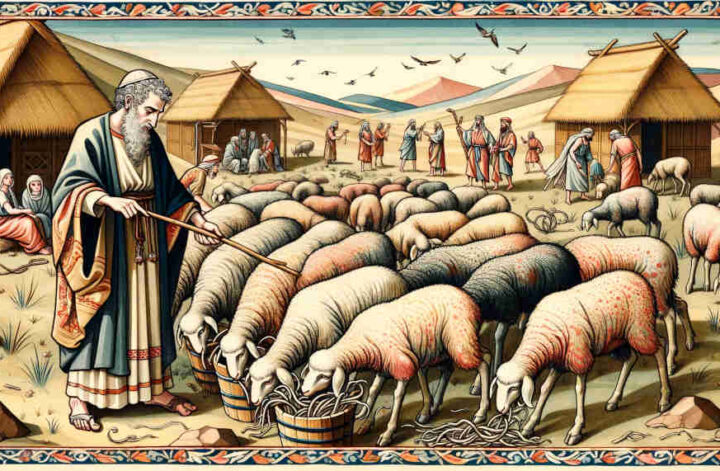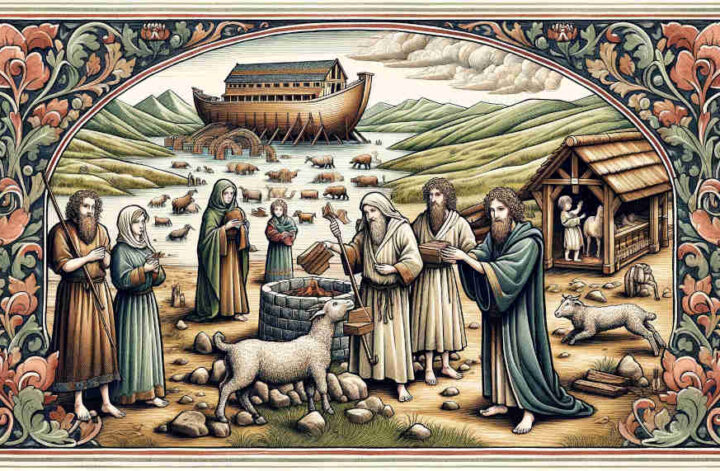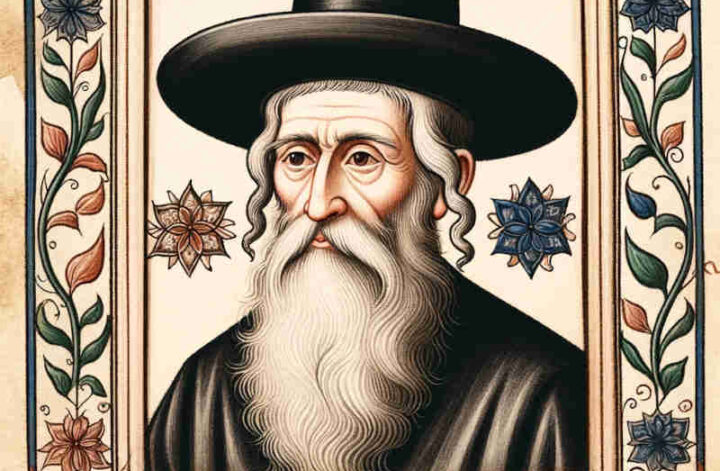From: Elizabeth Rodriguez
To: Rabbi Joshua
Subject: Did Jacob Deceive Laban?
Dear Rabbi Joshua,
I’ve been reflecting on the story of Jacob and Laban, and I can’t help but feel that Jacob’s actions, particularly the trick with the staffs, were somewhat deceptive. Can we consider Jacob’s actions as immoral in this context?
Warm regards,
Elizabeth
Jacob and Laban: Understanding the Complexity of Their Relationship
Dear Elizabeth,
Your question touches on a nuanced and complex aspect of Biblical narrative, inviting us to explore the deeper layers of morality and ethics within the Torah. Let’s delve into this together.
Jacob’s Actions: Context and Interpretation
The story of Jacob and Laban, particularly the episode involving the streaked and spotted livestock (Bereishit 30:37-43), has been a subject of much discussion and interpretation. In this instance, Jacob places peeled branches in the watering troughs, influencing the appearance of the offspring of Laban’s flock. This act, which resulted in Jacob’s increased wealth at the expense of Laban’s, can be seen through various ethical lenses.
Moral Examination of Jacob’s Conduct
One perspective views Jacob’s actions as a response to Laban’s own deception and mistreatment. Laban deceived Jacob by substituting Leah for Rachel on his wedding night (Bereishit 29:25), and changed his wages ten times (Bereishit 31:7). In this light, Jacob’s actions could be seen as a form of survival and self-preservation in an environment of deceit and exploitation.
Another angle, however, raises questions about the morality of using deceptive methods, even in response to deception. The ethical principle of “מדה כנגד מדה” (measure for measure) in Jewish thought supports the idea of poetic justice, but does it justify one’s own deceptive practices?
The Torah often presents its characters in a realistic light, showing their virtues and flaws, and allowing readers to grapple with complex moral dilemmas. Jacob, like many Biblical figures, is not depicted as perfect. His life is a journey of spiritual growth and character development, which includes moments of questionable decisions.
This story invites us to reflect on the challenges of ethical decision-making, especially in situations where right and wrong are not clear-cut. It encourages us to consider the consequences of our actions, the importance of intent, and the complexity of human relationships and moral choices.
Ultimately, Jacob’s story is a testament to the ongoing struggle with moral dilemmas and the quest for spiritual growth and integrity. It serves as a reminder that our journey through life is often marked by difficult choices and the pursuit of balance between our values and the realities we face.
May your study of Torah continue to offer you deep insights and guide your moral compass, Elizabeth.
Shalom,
Rabbi Joshua


